
PUBLICATIONS CENTRE
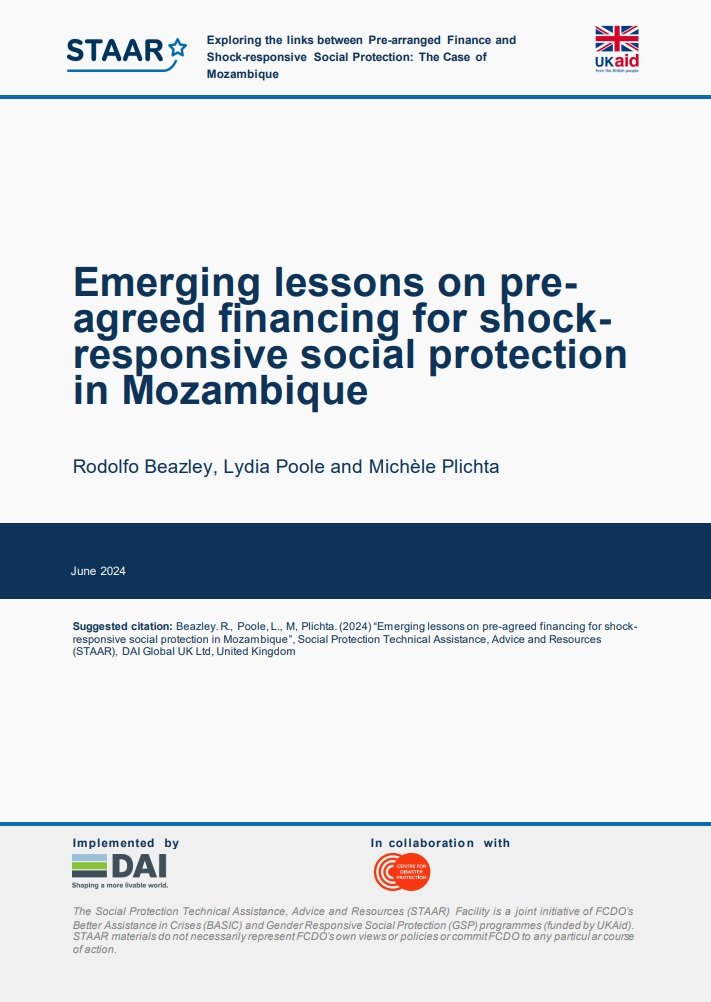
Emerging lessons on pre-agreed financing for shock-responsive social protection in Mozambique
This study, conducted by the Centre for Disaster Protection in collaboration with the Social Protection Technical Assistance, Advice, and Resources (STAAR) Facility, investigates the potential opportunities, benefits and risks when linking disaster risk financing (DRF) and shock-responsive social protection (SRSP) in Malawi. The report contributes to a broader study that includes research across three country case studies (Jamaica, Malawi, and Mozambique) to consider the opportunities, potential risks, and benefits of channelling disaster risk financing instruments through national social protection systems. The focus of this report is Mozambique.
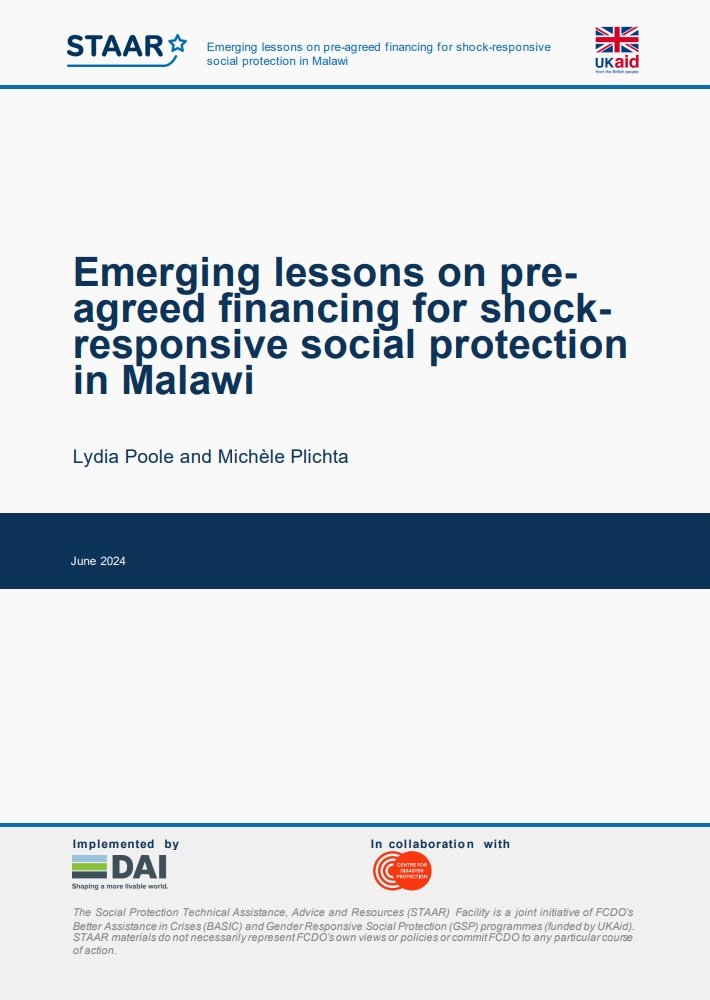
Emerging lessons on pre-agreed financing for shock-responsive social protection in Malawi
This study, conducted by the Centre for Disaster Protection in collaboration with the Social Protection Technical Assistance, Advice, and Resources (STAAR) Facility, investigates the potential opportunities, benefits and risks when linking disaster risk financing (DRF) and shock-responsive social protection (SRSP) in Malawi. The report contributes to a broader study that includes research across three country case studies (Jamaica, Malawi, and Mozambique) to consider the opportunities, potential risks, and benefits of channelling disaster risk financing instruments through national social protection systems. The focus of this report is Malawi.
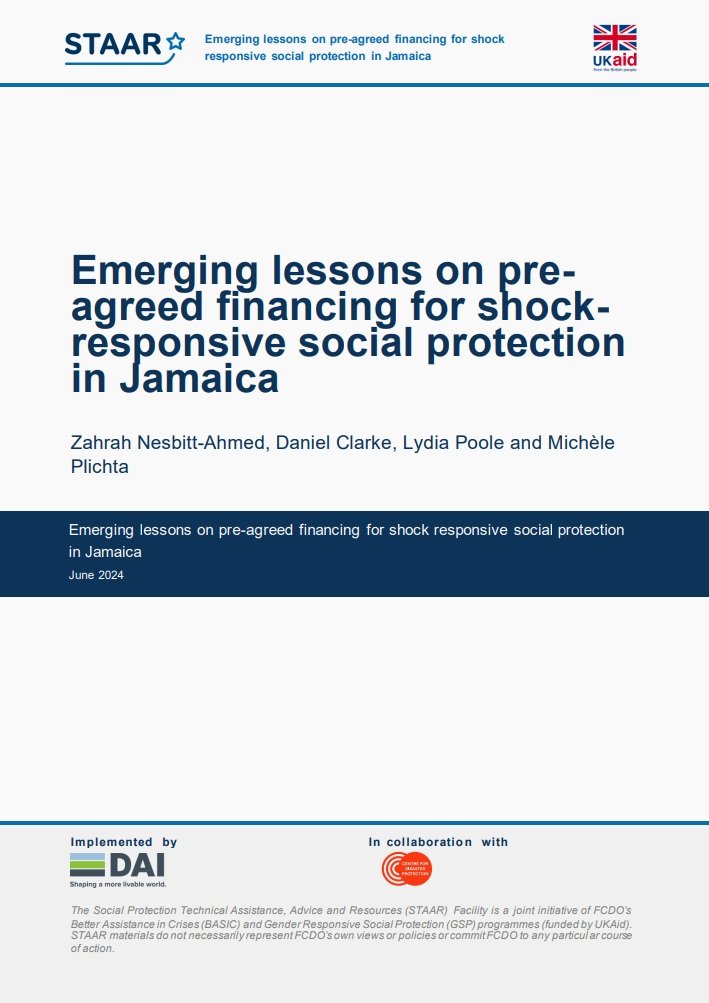
Emerging lessons on pre-agreed financing for shock-responsive social protection in Jamaica
This study, conducted by the Centre for Disaster Protection (hereafter, the Centre) in collaboration with the Social Protection Technical Assistance, Advice, and Resources (STAAR) Facility, investigates the potential opportunities, benefits and risks when linking disaster risk financing (DRF) and shock-responsive social protection (SRSP). The report contributes to a broader study that includes research across three country case studies (Jamaica, Malawi, and Mozambique) to consider the opportunities, potential risks, and benefits of channelling disaster risk financing instruments through national social protection systems. The focus of this report is Jamaica.
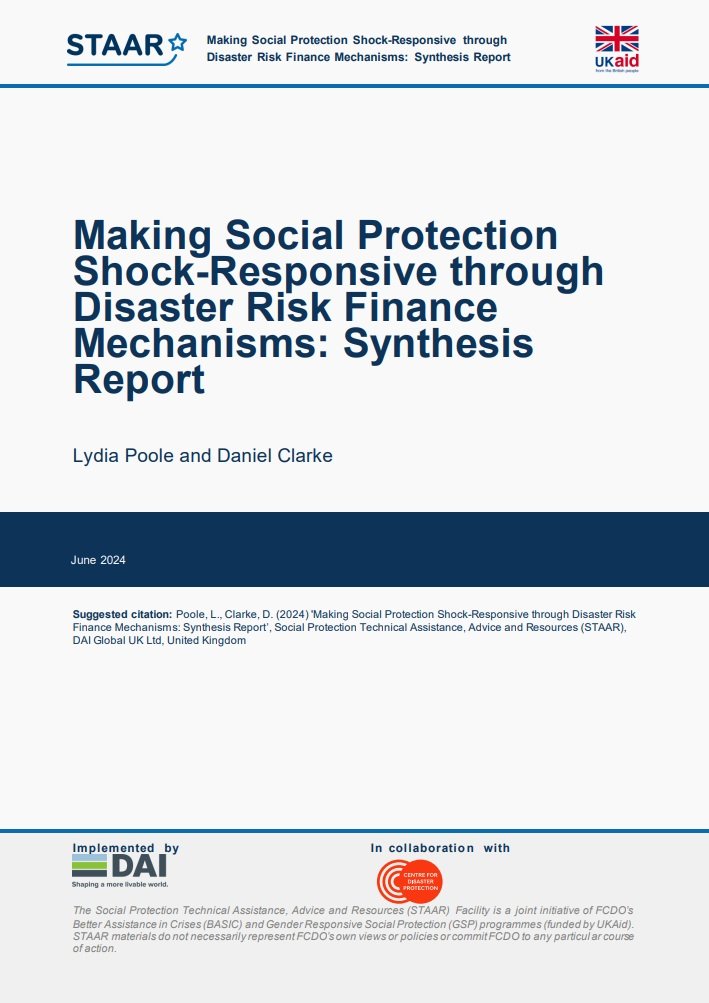
Making Social Protection Shock-Responsive through Disaster Risk Finance Mechanisms: Synthesis Report
This study, conducted in collaboration with the Social Protection Technical Assistance, Advice, and Resources (STAAR) Facility, addresses gaps in evidence on the potential to integrate disaster risk finance (DRF) and social protection systems. The research includes three case studies – Jamaica, Malawi and Mozambique. The study puts forward six lessons and 12 recommendations for donors interested in supporting this agenda.
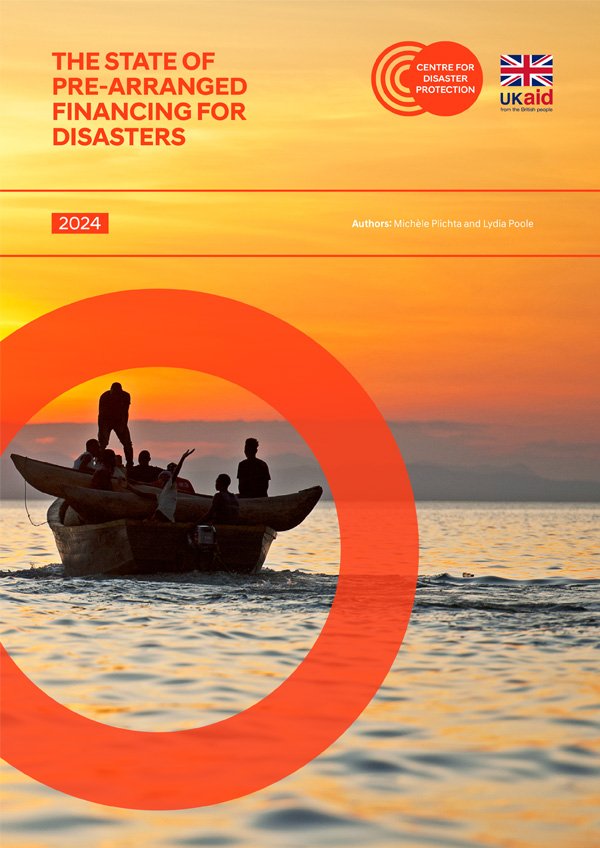
THE STATE OF PRE-ARRANGED FINANCING FOR DISASTERS 2024
The State of Pre-arranged Financing for Disasters 2024 is a unique source of data and analysis on the level of effort of international development donors to support a shift towards arranging financing for disasters, before shocks happen. In its second year, the Centre’s annual analysis of trends and patterns in international development financing for pre-arranged financing for disasters also presents the latest available data on coverage and payouts provided by these instruments.
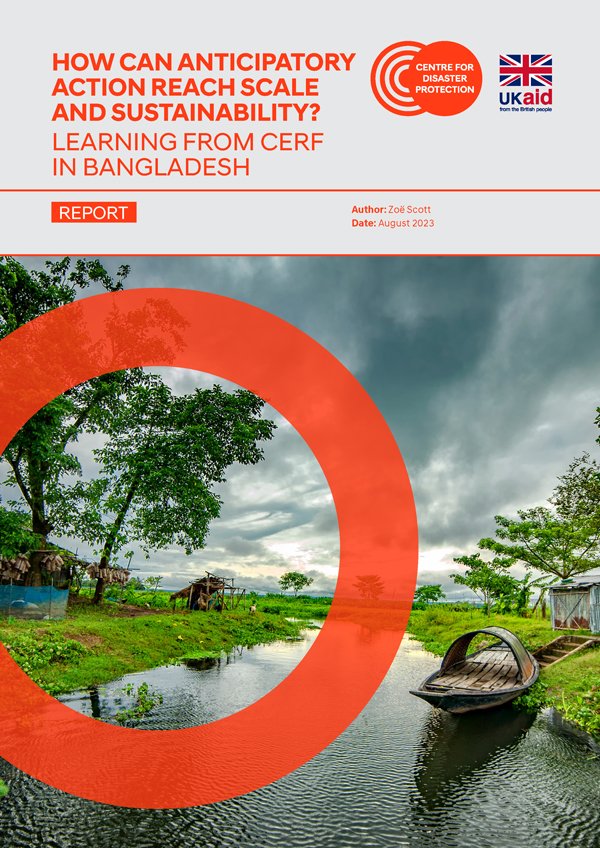
HOW CAN ANTICIPATORY ACTION REACH SCALE AND SUSTAINABILITY? LEARNING FROM CERF IN BANGLADESH
This report captures and builds on learning from the United Nations Office for the Coordination of Humanitarian Affairs (OCHA) anticipatory action pilot in Bangladesh. This is one of a series of pilots that aim to generate further evidence of anticipatory action’s benefits in reducing the impact of foreseeable disasters. The Centre for Disaster Protection has supported OCHA’s learning from these pilots by capturing lessons and benefits that emerge from the process, as well as advising on strategies to monitor and evaluate the short-, medium- and long-term results. This report differs from other learning outputs produced by the Centre as it takes a forward-looking perspective, and focuses primarily on the question of how anticipatory action can reach scale and sustainability in Bangladesh.
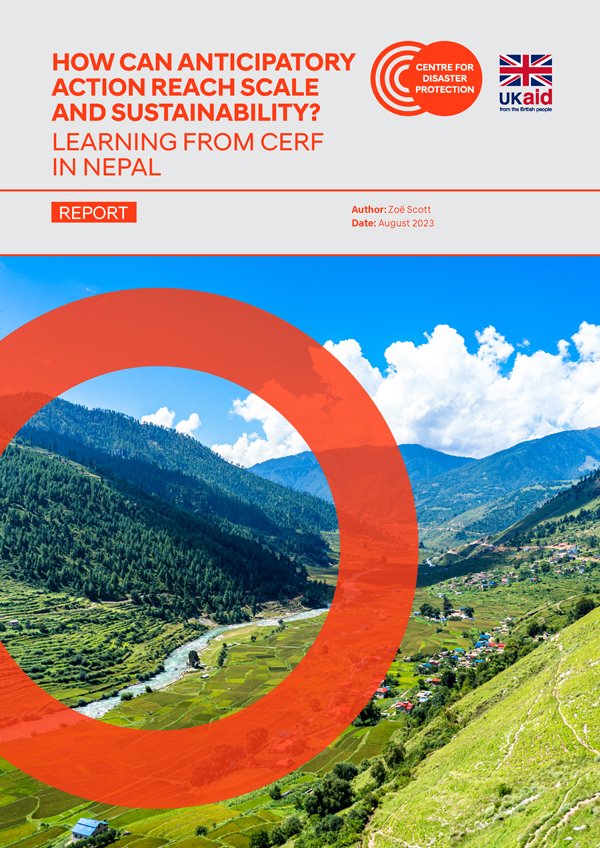
HOW CAN ANTICIPATORY ACTION REACH SCALE AND SUSTAINABILITY? LEARNING FROM CERF IN NEPAL
This report captures and builds on learning from the United Nations Office for the Coordination of Humanitarian Affairs (OCHA) anticipatory action pilot in Nepal. This is one of a series of pilots that aim to generate further evidence of anticipatory action’s benefits in reducing the impact of foreseeable disasters. The Centre for Disaster Protection has supported OCHA’s learning from these pilots by capturing lessons and benefits that emerge from the process, as well as advising on strategies to monitor and evaluate the short-, medium- and long-term results. This report differs from other learning outputs produced by the Centre as it takes a forward-looking perspective, and focuses primarily on the question of how anticipatory action can reach scale and sustainability in Nepal.
